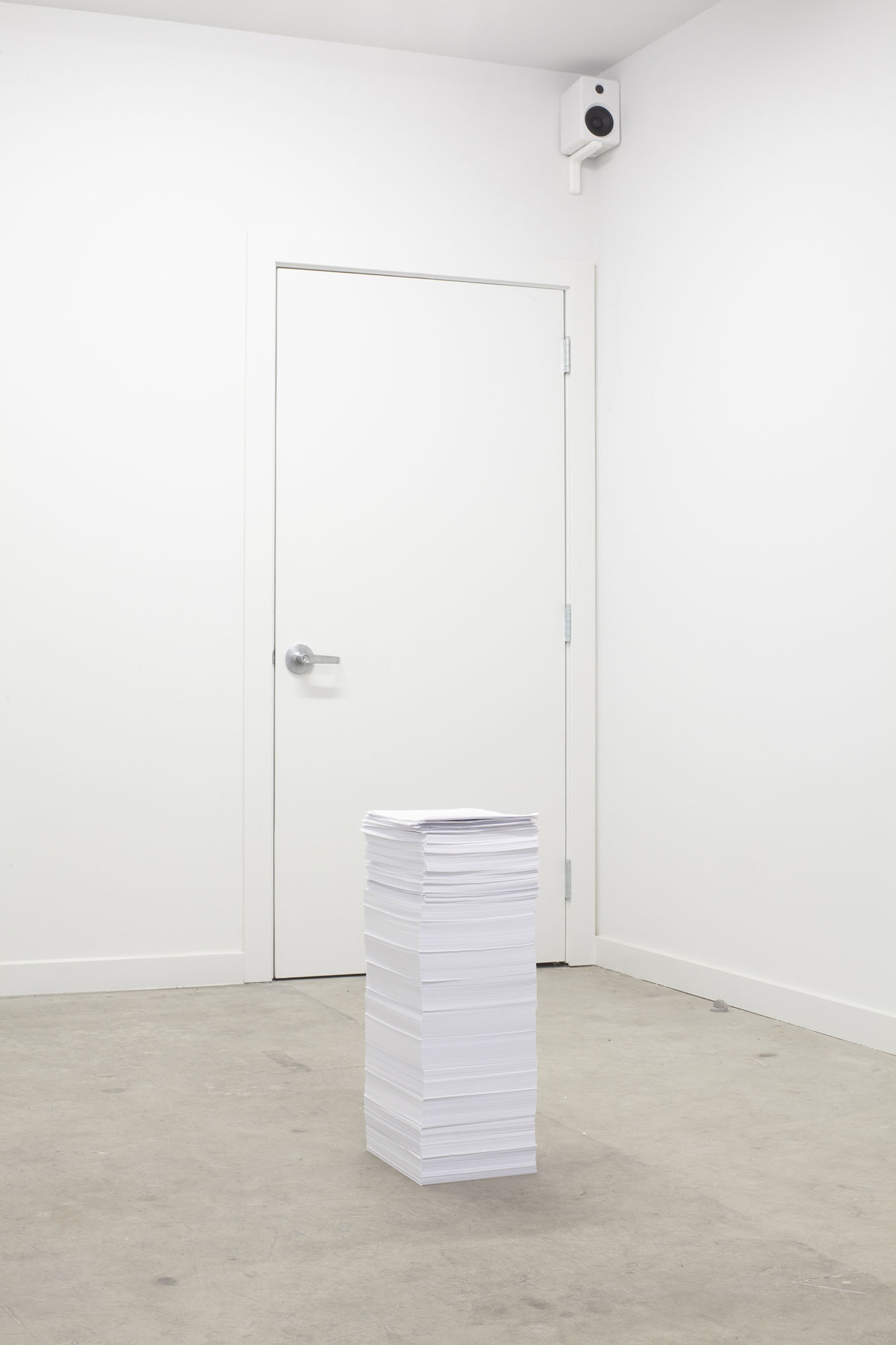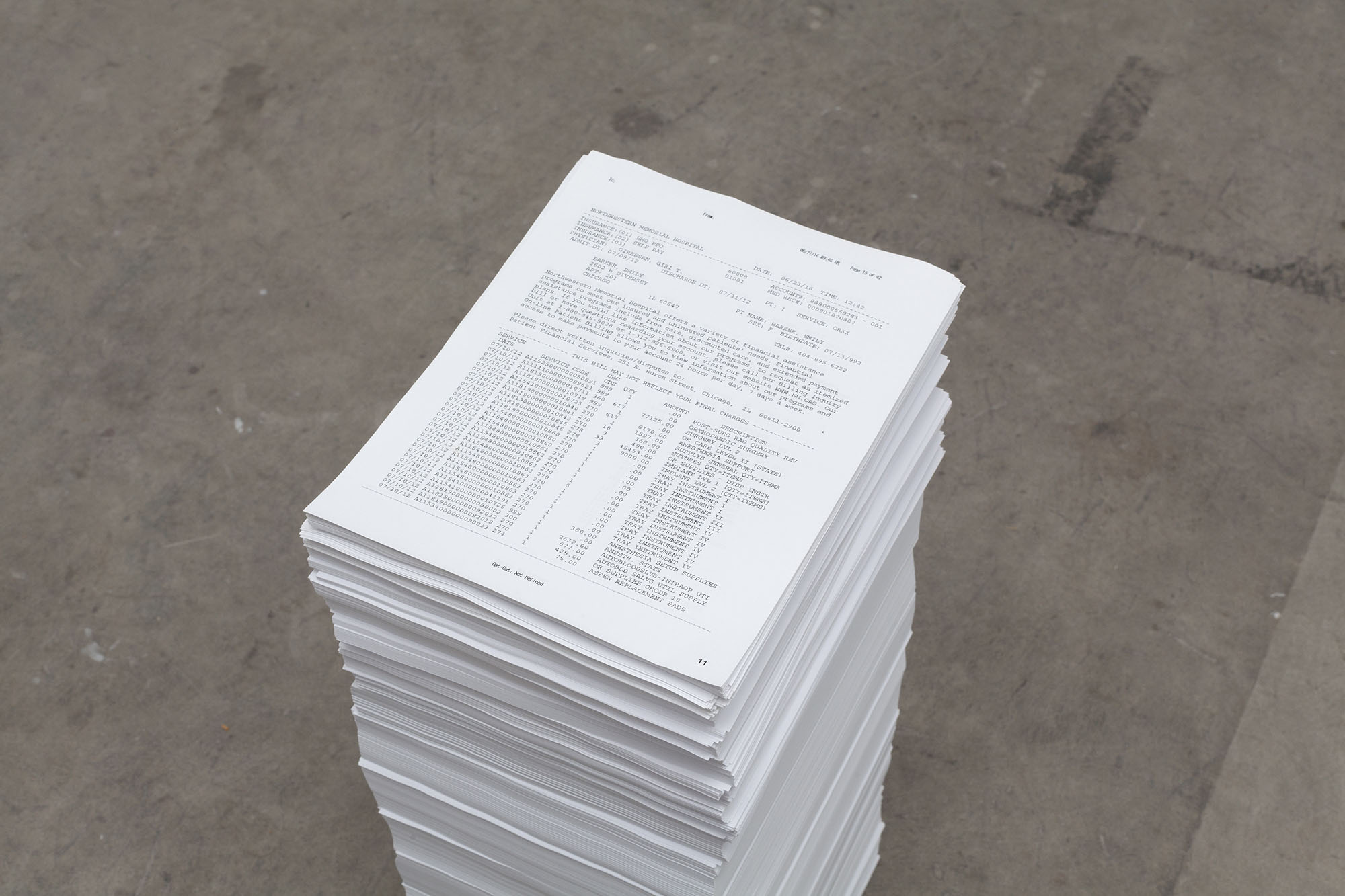In 2012, Emily Barker, a 19-year old student at the Art Institute of Chicago, fell four stories inside an improperly secured building. The accident led to paraplegia, a six-month hospital stay, countless operations, chronic pain, and a stack of bills and correspondence that inspired “Death by 7865 Paper Cuts.”
 This installation-based work is a neat pile of 7,865 documents from 2012 to 2015 that includes bills for medical treatments, medical records, and care plans with their accompanying costs. Had all communications with the bureaucracy of the healthcare system to date been included, the pile would have fallen over.
This installation-based work is a neat pile of 7,865 documents from 2012 to 2015 that includes bills for medical treatments, medical records, and care plans with their accompanying costs. Had all communications with the bureaucracy of the healthcare system to date been included, the pile would have fallen over.
In an interview with the Whitney Museum of American Art, Barker, who experienced spinal cord injury and uses a wheelchair, says the stack of papers over two feet tall “shows the medical industrial system and the healthcare industrial system and the pharmaceutical industrial system and how those all operate together when something tragic happens or an accident happens. You’re then faced with millions of dollars of medical bills and debt.”
 Note the piece of paper on top of the pile: a partial bill from the day after the accident in excess of $144,000 for various surgical interventions on Barker’s spinal cord.
Note the piece of paper on top of the pile: a partial bill from the day after the accident in excess of $144,000 for various surgical interventions on Barker’s spinal cord.
Barker says that she “racked up hundreds of thousands of dollars” for six months of hospitalization and “hit a million in the first year” of her recovery.
Barker is among the tens of millions of U.S. households whose credit reports include $88 billion in medical debt as of June 2021. Caught in a doom loop between medical providers and insurance companies, families and individuals struggle under crushing debt that often impacts their quality of life beyond the underlying medical concerns.
No longer able to paint, Emily Barker now lives and works in Los Angeles as a multimedia conceptual artist, designer, and activist. Her work confronts the blind spots in everyday dimensional and design standards that “leave out and patronize people who do not fit within these preconceived notions of normalcy.”
View Barker’s work to learn more.




